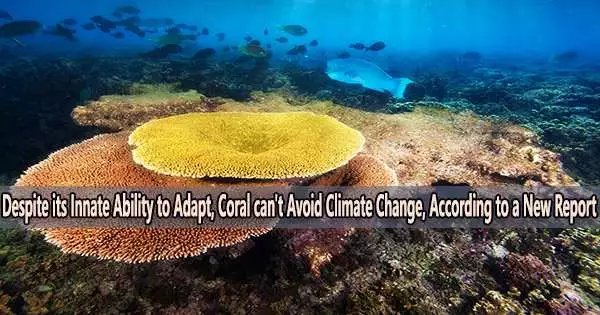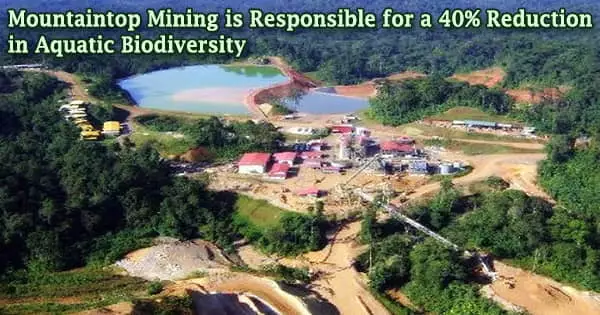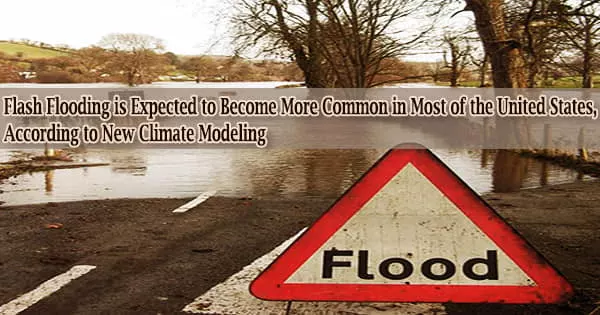Despite coral’s innate ability to adapt, a recent study demonstrates that even mild global warming could result in the obliteration of our coral reefs.
Dr. Christopher Cornwall from Te Herenga Waka Victoria University of Wellington’s Te Kura Mātauranga Koiora School of Biological Sciences led the study, and says the results are concerning.
“We found that corals’ natural adaptive capacity would not be enough to save the reefs from eroding due to climate change. Not unless we stop emitting greenhouse gases immediately and start developing techniques to remove the gases from our atmosphere.”
Coral colonies are held up by a stiff calcium carbonate skeleton that is comparable to the structure of our bones and is surrounded by soft “polyps” that resemble anemones. Little, microscopic algae that feed the coral are present inside these polyps.
Since algae have significantly shorter generation cycles than coral, they may be able to change more quickly in reaction to stress. Coral, on the other hand, have very long generation times, lasting years or even decades. Corals could “shuffle” those algae that are more thermally tolerant, thereby occupying the more heat-tolerant ones.
The article, “Coral adaptive capacity insufficient to halt global transition of coral reefs into net erosion under climate change,” published in the journal Global Change Biology on March 21, models how calcium carbonate production could change under climate change with and without the coral evolving tolerance to warming seawater.
The study examined the effects of three warming and acidification scenarios on calcium carbonate production. The scenarios looked at warming between 2050 and 2100, Representative Concentration Pathways (RCP) 2.6, where warming is between 0.7°C and 0.98°C; RCP 4.5, between 0.87°C and 1.59°C; and RCP 8.5, between 1°C and 2.43°C.
We found that corals’ natural adaptive capacity would not be enough to save the reefs from eroding due to climate change. Not unless we stop emitting greenhouse gases immediately and start developing techniques to remove the gases from our atmosphere.
Dr. Christopher Cornwall
Dr. Cornwall says the results show that average coral reef growth globally across the sites he examined only stayed positive under RCP 2.6.
“Only 9 to 35% of our reefs would still be growing by 2050 in scenarios with coral evolution, depending on both greenhouse gas emissions, but in the Atlantic and Indian Oceans they would all be eroding.”
“However, only 9% to 13% would still be growing by 2050 without evolution.”
According to him, under reduced emissions scenarios, coral’s natural capacity for adaptation will only be able to guarantee somewhat higher growth rates.
“Under our worst-case scenarios, only 6 out of the 201 reefs we examined would survive. The results show that there’s an immediate need to reduce greenhouse gas emissions if we want our reefs around in the long term.”
According to Dr. Cornwall, coral reefs are essential components of their ecosystems in tropical and subtropical areas, acting as a barrier between the ocean and the shore, housing nearly a quarter of marine species, and preventing coastal erosion.
“We’ve seen a lot of damage already with mass coral bleaching events caused by marine heatwaves, but their ability to persist and continue growing is going to be strongly influenced by ongoing warming.”
“Many corals just won’t be able to adapt quick enough, and we could lose almost or all of their ecological function across the globe.”
Dr. Cornwall claims that one frequently debated option is to spread more heat-tolerant species with high calcium carbonate production rates in areas that are most at risk.
“The challenge is that the species that are more heat-tolerant tend to be the ones that grow slower, and the ones that grow faster are the most heat sensitive.”
“Really, the best solution is to keep warming below 1.5 degrees and invest in carbon dioxide removal.”
















